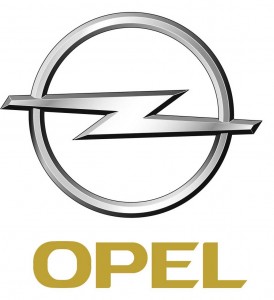General Motors is once again considering the sale of its money-losing European operations and has entered talks with French automaker Peugeot’s parent, the PSA Group.
The automakers both announced plans to explore new “strategic initiatives” on Tuesday, those statements coming exactly a week after GM confirmed it had once again gone into the red in Europe. It has not earned a profit there since 1999, despite repeated promises to fix the problems at its Opel and Vauxhall brands.
Noting they already have “three projects in Europe” underway, GM and PSA said they “confirm they are exploring numerous strategic initiatives aiming at improving profitability and operational efficiency, including a potential acquisition of Opel Vauxhall by PSA,” though the joint statement cautioned “There can be no assurance that an agreement will be reached.”
This marks the second time since GM emerged from Chapter 11 protection in July 2010 that the automaker has considered a sale of its European operations. Former CEO Fritz Henderson nearly completed a deal with a group led by Canadian mega-supplier Magna International. But that was scuttled and he was forced out. Three chief executives have since struggled to find the formula that would turn things around at Opel without success.
(Opel charges into Paris with long-range Ampera-e. Click Here for the story.)
Now, Chairman and CEO Mary Barra appears to have reached the conclusion there might be no other alternative but to go back to square one and dump the operation.

Opel hasn't turned a profit in nearly two decades, and GM appears to be considering a sale of its European unit.
The Detroit maker had hoped to finally claw its way back into the black in Europe in 2016, but Opel proved an anchor on what was an otherwise solid year. European operations posted $257 million in pre-tax red ink, though that was down from an $813 million loss for 2015.
GM Chief Financial Officer Chuck Stevens noted during an earnings conference call the Brexit vote in the UK cost $300 million because of the weakened British pound. And he warned it could have a similar impact on GM’s European earnings in 2017. For her part, CEO Barra said during the call that “We aren’t satisfied with these results.”
(Click Here for details about European auto sales.)
GM has already addressed what analysts have called the low-hanging fruit. It has closed Opel plants in Belgium and Germany, and it abandoned its struggling Saab brand after emerging from its 2010 bankruptcy. It also withdrew the Chevrolet brand from Europe to focus exclusively on Opel and its British-based mirror brand, Vauxhall.
But Europe has confounded a number of manufacturers in recent year. The market went through a long recession and has only begun to regain momentum over the last 18 months. Rivalry is intense, with more than a half-dozen manufacturers vying for dominance. Only the Volkswagen Group has been able to rise above the fray.
The PSA Group was, for a number of years, among the more troubled players. But it has undergone a strong turnaround since mid-decade. And observers suggest that it could benefit from the economies of scale that would come from adding to its current portfolio which primarily focuses on the Peugeot and Citroen brands. Adding Vauxhall and Opel would give it a 16.3% share of the European passenger car market, second only to VW’s 24.1% share. It would also let PSA leapfrog its home market rival, the French side of the Renault-Nissan Alliance.
But selling Opel would also further diminish General Motors’ role in the global auto sales standings. Long the king-of-the-hill, it lost its sales crown as it plunged into bankruptcy, regaining the lead briefly, in 2011, due to the devastating Japanese earthquake that crippled Japanese rival Toyota. Last year, Volkswagen nabbed the global sales title, GM sinking to third, though it still managed to sell 10 million vehicles worldwide.
(To see the latest efforts by PSA, Click Here.)
Losing Opel and Vauxhall would shave 1 million vehicles a year from that figure and GM would slip to at least fourth, behind the Renault-Nissan Alliance.

